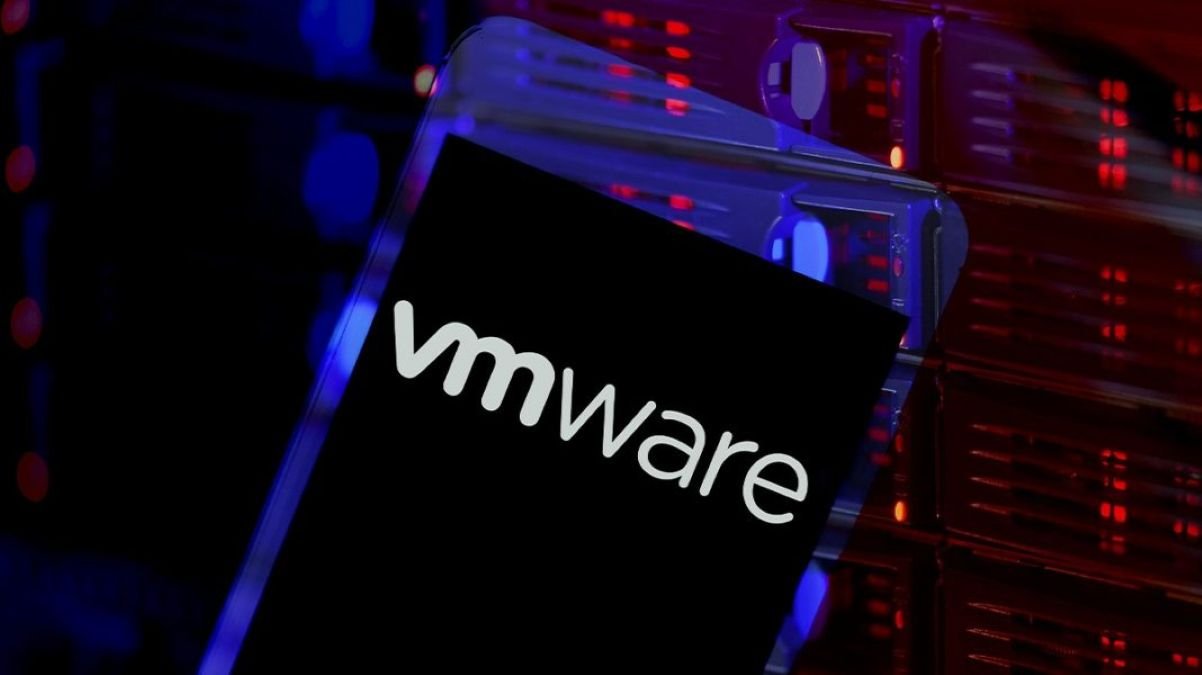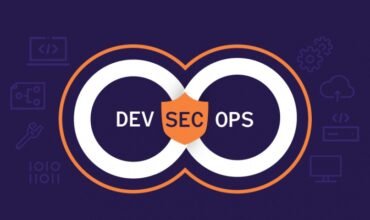Broadcom has announced the general availability of VMware Cloud Foundation (VCF) 9.0, the platform for the modern private cloud. With VCF 9.0, customers gain a consistent operating model for the private cloud, spanning data centers, edge, and managed cloud infrastructure from service providers and hyperscalers. VCF 9.0 combines the agility and scalability of public cloud with the security, performance, architectural control and total cost of ownership (TCO) benefits of an on-premises environment.
VCF 9.0 delivers a single unified platform that supports all applications—traditional, modern, or AI—with consistent operations, governance, and controls across the private cloud environment. With VCF 9.0, customers benefit from a modern private cloud that:
- Accelerates innovation with out-of-box self-service offerings and a consistent experience that frees development teams to focus on applications instead of infrastructure.
- Controls cost through deep visibility and insights into resource usage that allow better planning, predicting, and optimization of cloud spend.
- Enables sovereignty and security with data control that supports better compliance, cyber resilience at scale and fleet-level management that helps ensure the latest patches are applied quickly, security controls are up to date, and policy compliance continues.
“With this next generation of our cloud platform, VMware Cloud Foundation 9.0, we are again raising the bar for the modern private cloud by vastly simplifying the deployment, operations, and developer experience of the cloud,” said Krish Prasad, senior vice president and general manager, VCF Division,Broadcom. “Most enterprises are now looking to the private cloud to run both traditional mission-critical and new AI and containerized applications. VMware Cloud Foundation 9.0 is the ideal platform for running these modern applications, enabling our customers to be more innovative, efficient, resilient, and secure. We are very excited to see that customers of all sizes are embracing VCF at a rate that has exceeded even our own high expectations.”
The Fundamental Shifts in VMware Cloud Foundation 9.0
VMware Cloud Foundation 9.0 boasts a completely new architecture that empowers IT admins and application teams to accomplish far more and spend far less. The platform delivers a streamlined experience for building, operating, and securing a modern private cloud across on-premises data centers, in hyperscaler and VMware Cloud Service provider clouds, and at the edge. VCF 9.0 is uniquely designed to remove the friction between infrastructure and application teams.
One Interface for Private Cloud Operations: VCF 9.0 introduces a unified interface for cloud administrators, offering a holistic view of private cloud operations. The new Quick Start App significantly reduces setup time and complexity. Integrated cost management and policy enforcement enables immediate compliance and operational efficiency. Scalable fleet management allows administrators to plan, schedule, and execute upgrades across clusters efficiently, increasing daily productivity up to 10x1. Centralized identity and access management, including single sign-on, password policies, and certificates, enable consistency across environments. Consolidated log management delivers insights twice as fast1, allowing for rapid response. Advanced analytics help administrators understand workload behavior, enabling targeted responses for security and performance optimization.
Frictionless Cloud Consumption Experience: VCF 9.0 offers a unified interface for platform and development teams, simplifying infrastructure service delivery and consumption. Platform teams can effectively organize, provision, and manage tenant resources with granular control. More secure, role-based access is enabled through streamlined administration of both admin and tenant identities. Compliance across all deployments is maintained by built-in governance policies, while pre-configured blueprints simplify provisioning, lessen manual tasks, and guarantee repeatable, compliant infrastructure. Developers gain access to automated and elastic self-service IaaS services, creating a genuine cloud-like experience.
Unified VM, Container and Kubernetes Platform: VCF 9.0 takes a significant leap forward as a unified platform for traditional, cloud native and AI applications. The embedded vSphere Kubernetes Service (VKS) enables both virtual machines (VMs) and containers to be treated equally. This allows customers to build, deploy, and run Kubernetes and virtualized workloads together and eliminates complex DevOps stacks and integrations. Developers can immediately begin building and deploying, while IT maintains security and consistency. A single interface and operational model manages VM-based applications, cloud-native workloads, AI/ML applications, and traditional enterprise databases.
Superior Cloud Cost Transparency: VCF 9.0 offers distinct cost predictability and transparency advantages over public cloud. Comprehensive insights extend beyond infrastructure, incorporating software licensing, operational expenses, and data center costs, thus providing a holistic TCO perspective. Additionally, built-in analytics enable predictive cost modeling for effective infrastructure planning and forecasting, helping organizations avoid unforeseen financial challenges. Automated resource optimization dynamically reclaims underutilized capacity to enhance workload efficiency and prevent unnecessary infrastructure sprawl. Finally, detailed showback and chargeback data, grounded in resource allocation, provide a clear return on infrastructure investment.
Sovereign and Secure: VCF 9.0 is engineered to provide robust data control, compliance, and resilience, empowering IT operations amidst regulatory complexities and geopolitical uncertainty. A key feature is the new SecOps dashboard, offering a quick view of platform security and data controls, along with integrated compliance policies. Regulatory guardrails facilitate consistent governance. VCF 9.0’s support for the latest confidential computing technologies from AMD and Intel will enable organizations to leverage the newest generation of secure enclaves, encrypted memory, and attestation capabilities, allowing IT teams to deploy confidential workloads across heterogeneous infrastructure while maintaining consistent security policies and operational workflows.
Core Innovation Delivers Meaningful Customer Outcomes
VCF 9.0 is built on industry-leading compute, networking, and storage technologies, and Broadcom continues to innovate around these core capabilities to deliver significant customer value. Advanced Memory Tiering for NVMe can deliver 38% lower memory and server TCO. VMware vSAN ESA with Global Dedupe can reduce storage TCO by 34%. VMware NSX enhanced data path can deliver as much as 3x switching performance to maximize throughput. New vSAN-to-vSAN data protection with deep snapshots enables more efficient, native recovery from disasters or ransomware attacks. As a platform for modern AI applications, VCF delivers virtually zero performance overhead when compared to bare metal3 while providing the ability to support zero-downtime vMotion for AI applications.
New Innovation Across Advanced Services for VCF Portfolio
Advanced services for VMware Cloud Foundation are ready-to-deploy solutions that enable customers to accelerate innovation in their private cloud environments. This diverse library of private cloud solutions is similar to what enterprises have come to expect from the public cloud, allowing them to access the tools and technologies they need to rapidly address a variety of use cases and business opportunities. With VCF 9.0, Broadcom is delivering new innovations across the advanced services portfolio:
- VMware Private AI Foundation with NVIDIA: This joint AI platform solution from Broadcom and NVIDIA offers improved cybersecurity with air-gap support; GPU-as-a-Service with multi-tenancy support for AI workloads; vGPU profile visibility to eliminate manual tracking; improved utilization with enhanced GPU and vGPU monitoring capabilities; simplified model usage and scalability with Model Runtime; and more efficient creation of AI agents with Agent Builder Service.
- VMware Live Recovery: A single solution for managing cyber and disaster recovery across VMware Cloud Foundation (VCF) deployments, VMware Live Recovery now delivers increased data sovereignty through an on-premises isolated clean room / recovery environment (IRE) for cyber recovery (available as a VMware Validated Solution); flexibility to recover to a VCF isolated clean room on-premises or an existing cloud option; up to 200 immutable snapshots per VM enabled by native replication; and more efficient scaling through the ability to expand storage independently of compute with vSAN storage clusters
- VMware vDefend: This advanced service for VCF provides built-in threat detection and response, zone- and application-level micro-segmentation, distributed lateral security, reduced attack surface, and zero trust enforcement across VCF environments. With VCF 9.0, vDefend has added self-service microsegmentation; VPC-aware lateral security with delegated administration; VCF Import integration to streamline transition of existing vDefend deployments into VCF 9.0; and global IDS/IPS policy management for consistent threat defense policies across multi-site VCF deployments. Read the news blog here.
- VMware Data Services Manager (DSM): As an advanced service for VCF, DSM 9.0 currently provides enterprise support for PostgreSQL and MySQL, and is now in Tech Preview with Microsoft SQL Server. New integration with VCF Automation enables IT teams to deliver database as a service (DBaaS), while additional DSM enhancements increase the operational efficiency for large database fleet management.
- Avi Load Balancer: This service provides plug-and-play load balancing services for VM and Kubernetes workloads with built-in global server load balancer (GSLB), application health and latency analytics, and web application firewall (WAF). With VCF 9.0, Avi Load Balancer now supports load balancing as self-service, streamlined operations and lifecycle management, and VPC-aware deployments.




